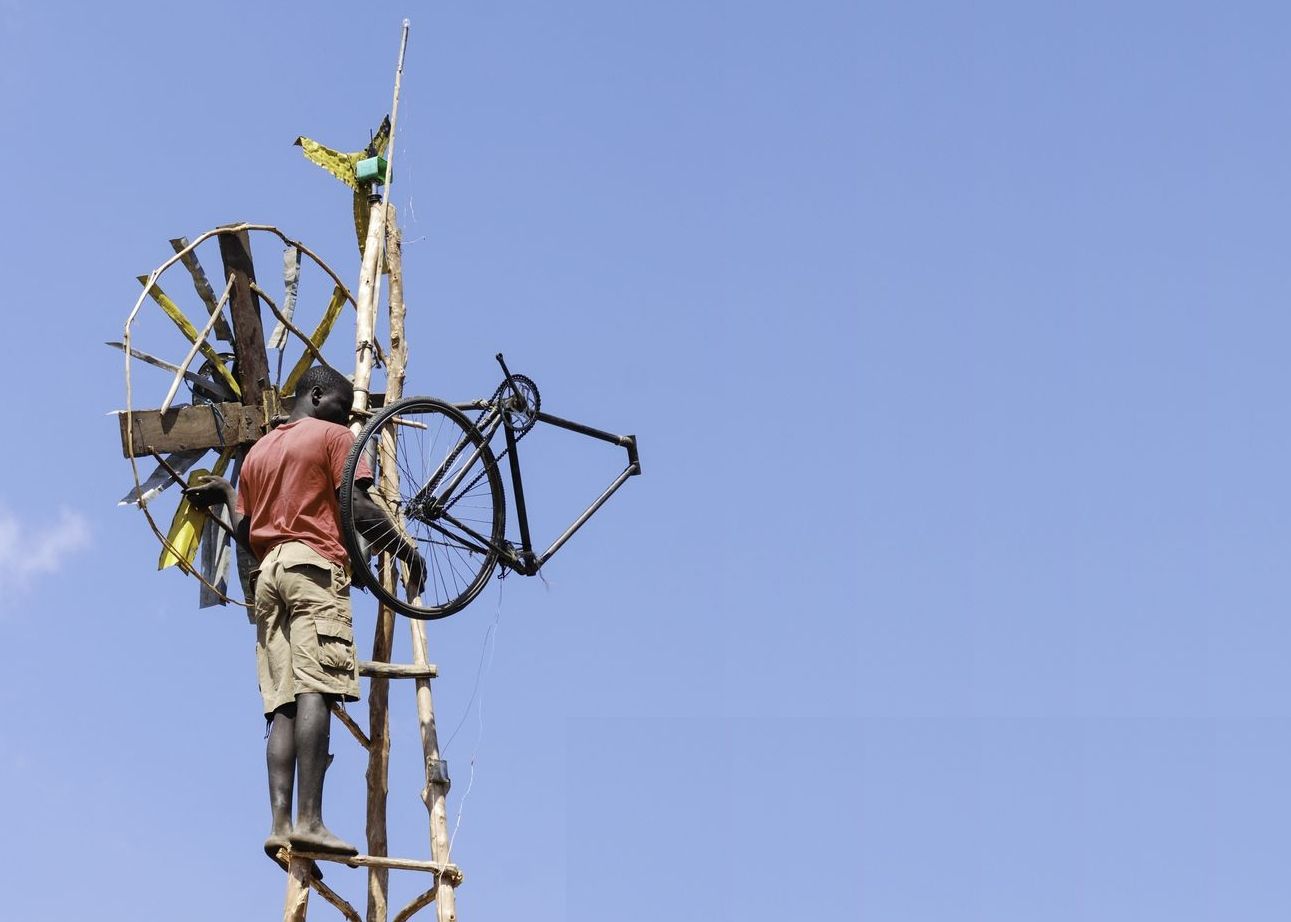Using Our Skill to make Possible the Things of God
William was 14 and lived with his parents on a small farm in Lilongwe Malawi. In 2002 one of the worst famines in history struck Malawi already a very poor country. As a result William had to leave school and help work the struggling maize and tobacco farm.
Though not able to continue his education, the inquisitive William continued to read, borrowing books from the small Church supported library. One day he discovered an old science book and read about windmills. Young William saw the potential of using wind power to pump water to his family’s wilting crop. Despite knowing very little English, William went to work constructing a windmill from the photographs and diagrams in the book. His parents thought he was wasting his time and the other villagers just laughed at his heap of scavenged junk. But two months later his windmill, constructed of discarded motor parts, PVC pipe and an old bicycle wheel began turning and generating enough electricity to power a radio.

William built a second windmill to power the lights in the family’s small hut and a third to pump water to irrigate the family farm. He has since built a windmill to power the village school and then he went on to help other village farmers to build their own small windmills.
Eight years later in 2010 William Kamkwamba began studying physics at Malawi’s national university. A group of entrepreneurs and venture capitalists who heard William speak at an international technology conference decided to finance his education and invest in William’s dream of building a system of windmills to provide electricity for his energy starved country.
William tells his story in his book the Boy who harnessed the wind, which was also made into a movie.
In today’s Gospel Jesus commends the crafty steward not for his theft but for his audacious ingenuity and puts this question to all of us: Should not the same skill and cleverness we use to create wealth be used to make possible the things of God?
William Kamkwamba’s story is an inspiring example of one boy’s perseverance, ingenuity and the resources he was able to cobble together to create a better life for his family and people. Christ warns his hearers not to trust wealth for its own sake but to use whatever form our wealth takes to establish in our midst the Father’s Kingdom of compassion, reconciliation and justice.
Jesus challenges us to be as ingenious for the sake of God’s reign as we are in our careers and professions, to be as ready and willing to use our time and money to accomplish great things in terms of the Gospel as we are to secure our own security and happiness, to open our hearts to the possibilities we have to build God’s Kingdom of compassion, mercy and peace in our time and place. Profit and security are important, to be sure — but for disciples of Jesus, the good we are able to bring about, the work we are able to do in order to bring God’s reign of justice and compassion to reality, should be the motivating force in our lives. Our faith should challenge us to be as eager and as ingenious for the sake of God’s reign, to be as ready and willing to use our time and “wealth” to create God’s Kingdom of justice and peace as we are to secure our own security and happiness.